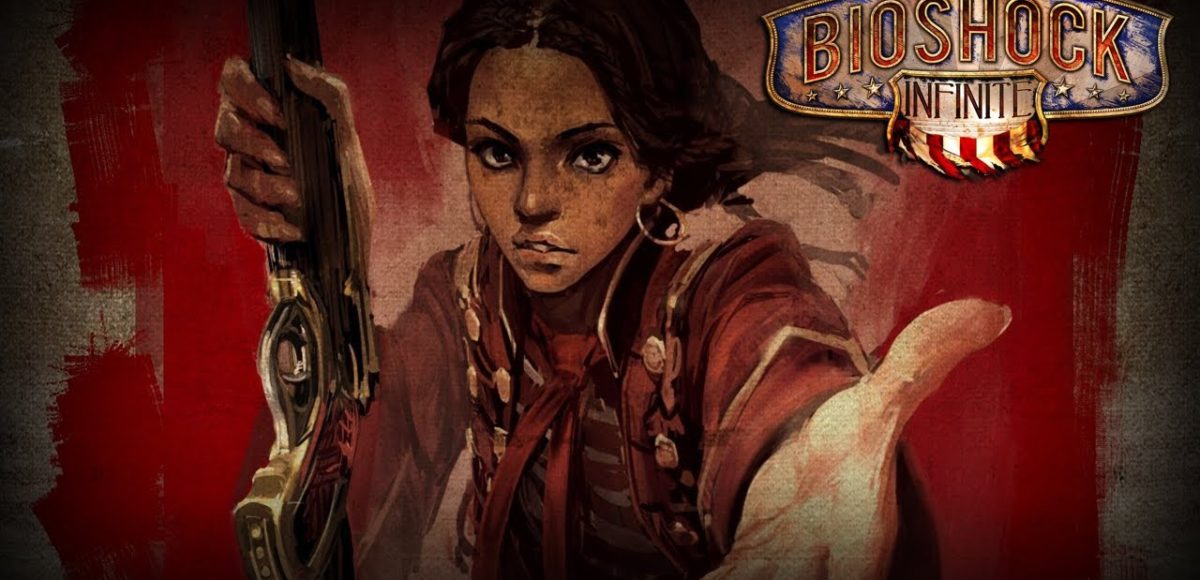Bioshock Infinite’s floating city of Columbia is a fantasy. It’s a fantasy not only because it’s a picturesque turn-of-the century cluster of islands floating effortlessly through the clouds, but also because it presents an idyllic and carefree society -one whose white citizens are supported off the labor and oppression of its poor and non-white ones, most of whom are black. Like America’s founding myth of the City Upon A Hill or the South’s pernicious Lost Cause narrative, fantasies of the kind represented by Columbia are often constructed to justify systems that benefit one group of people over another. Columbia’s fictional ideology exaggerates the white supremacist tenets of the above myths, but in setting them in opposition to violent, unsympathetic strawmen, the game’s creators, Irrational Games and writer and director Ken Levine, build a fantasy of their own.
The Vox Populi, Columbia’s resident militant revolutionary faction, is led by Daisy Fitzroy, a caricature of the black revolutionary, cribbed from mainstream recollection of groups like the Black Panthers and Mandela’s African National Congress. Wild, violent, unpredictable and untrustworthy: this is how the one character who might overthrow Columbia’s white supremacist nightmare is painted, as a villain just as poisonously evil as Father Comstock, Columbia’s “prophet” and the game’s’ central antagonist. In one cutscene Booker DeWitt argues: “The only difference between Comstock and Fitzroy is how you spell the name.” She is, according to Levine, “destroyed by oppression”: the tragic, but inevitable outcome of a once powerless person taking power for herself. How that transference of power actually comes about is barely touched upon. Instead, the player is expected to witness the fighting in the streets and assume her guilt.
By casting FItzroy in this light, Infinite throws away the possibility for its fantastical allegory to deliver a lesson. Criticisms of the segregated and authoritarian kleptocracy of Columbia’s white society are balanced against criticism of the violent methods the Vox Populi employ when resisting that society. As a result their struggle is swept aside, so that the plot of the final act, dealing with themes of guilt, parenthood, and forgiveness, culminating in a zany twist ending involving quantum mechanics, can take over. The true heroes, DeWitt and Elizabeth, are sent on their very important mission, and pass above the ugly fray of the poor, non-white citizens of Columbia, inconveniently fighting for their freedom. …continue reading on Bullet Points

